

Genial Stanley Cory in Malibu always offered prompt service, while H. Lynn Fann was always wonderfully chatty and happy to answer my (surely) annoying questions. Like Fann, Bob Decker often included “bonus” items with his tapes. If an opera didn’t fill up the entire reel, he’d happily introduce me to singers I’d never heard—beguiling snippets of Alain Vanzo’s Nadir completely bewitched me, and chunks of Magda Olivero’s blazing Met debut turned me into an Olivero fan for life.
Donald Kerne of San Diego became one of my heroes; after he learned of my keen interest in 17th and 18th century works, he went out of his way to “beat the bushes” rounding up many unusual items for me, especially lots of delicious Rameau, from his tape-collecting cronies.
While nearly all my tape catalogs from those days have disappeared, I still possess two. One is a guide to every Met broadcast from 1931 to 1976; before the advent of the astounding Met performance database, this little green-and-yellow booklet in tiny print was loads of fun to peruse. Byron Hathaway had carefully listed all the operas broadcast with complete casts along with notations about whether he had the broadcast for sale.
An amateur opera singer, Hathaway also had a wide-ranging general catalog and cheap prices (an opera was around $7 if two mono works could be paired up on a single reel), so I ordered lots from him. Unfortunately searching the internet can sometimes turn up information one wished one hadn’t. Looking Hathaway up recently, I was stunned to learn that he had been convicted in late 1981 of brutally murdering his estranged wife!
One of my favorite catalogs came from Alan E. Fischer in the Bronx. He had a superb collection impeccably listed to include all the most important information: broadcast or an in-house, stereo or mono, and best of all, a precise rating of the sound quality. He was, unfortunately, always extremely slow at sending out orders! At the opposite end of the spectrum, Music in the Mail posted disorganized, nearly indecipherable lists and the sound quality of many of its products sucked, but their tapes were always sure to be dubbed on the distinctive Shamrock label.
The wildly varying sound quality of pirate tapes would no doubt turn off many listeners, particularly the in-house recordings where someone had surreptitiously smuggled a tape recorder into the opera house. I got used to unpredictable sound pretty quickly: it was just one of the trade-offs. In fact, odd noises often became part of the musical fabricI now can’t listen to an aria from Mozart’s Lucio Silla without expecting to hear a loud cough at one particular moment thanks to one of my tapes.
One of my favorite suppliers justifiably bragged about the high quality of its service. Good Sound Associates was the Rolls Royce of opera pirates. Printed on legal-sized paper so it was always easy to find, GSA’s catalog included only the best-sounding recordings and its products were always dubbed at the optimum faster 7 ½ ips (inches per second) speed unlike nearly everyone else who offered only 3 ¾ ips. This high quality, of course, came at a price: initially an opera from GSA cost $16 (including postage) since two reels of tape were required, with longer operas requiring a third reel costing $24—that was a lot of money to a hard-working student but their tapes were nearly always worth it.
One of my favorite things about GSA was their monthly updates listing what was newly available; that envelope was always the first thing I tore open when the mail arrived. More often than not I knew I’d soon be running off to buy a money order to send them; I had decided early on that I didn’t need my mother writing more checks and knowing all about my increasingly recurrent tape-ordering! When Claudio Abbado conducted a nearly uncut Don Carlo on opening night of the 1977 La Scala season, the broadcast immediately showed up on the January GSA 1978 list, and before the month was over three dark blue tape boxes were in my hot little hands.
Two who weren’t part of my regular coterie are probably the names that some people today might know—if they know anything about pirates at all. While I ordered tapes from many people, I never ordered from Charles Handelman. His “Live Opera” catalog was always part of my “library,” but I just never found anything in it that tempted me, as his listings were too focused for my tastes on the Bellini-to-Puccini repertoire.
Back in 1975 I ordered one my first tapes from Ed Rosen, when his company—which has changed names many times over the years—was called (I think) Ed Rosen Recordings. I remember chuckling to myself during the late 1990s and 2000s when I would read on Opera-L and elsewhere people complaining about the poor customer service they were experiencing from Rosen. I had had the same experience many years earlier as that first tape only arrived many months after I ordered it. (And, of course, it was screwed up: the tape ran out before the music did.) I complained and a replacement eventually was sent. But that early experience soured me on Rosen, and like Handelman’s, his list back then was far too Chenier/Gioconda for me. (I am told his company seems to have recently gotten its act together after many, many years.)
However, for my money—of which he got quite a bit, the best of all pirates was Ralph Ferrandina aka “Mr. Tape.” I felt my head explode when I first received his extraordinary catalog and I’ve saved the later edition. I had been collecting for a while already but here was an extraordinary panoply of composers and works—many, many things I’d never seen anywhere else. I became dizzy, unable to decide what to order first.
Happily he was extremely professional and filled orders promptly. He was also very kind to me patiently answering all my queries about performances I coveted after having read about them in a recent issue of Opera or Opera News. Many times he found just that broadcast I wanted and then wrote me to let me know.
Rameau: Les Fetes d’Hebe
Act Three: “La Danse”
BBC 1973
Monteverdi Choir & Orchestra
Egle: Jill Gomez, Mercure: Philip Langridge
Conductor: John Eliot Gardiner
The shocking fate of Mr. Tape is revealed in Part Four.














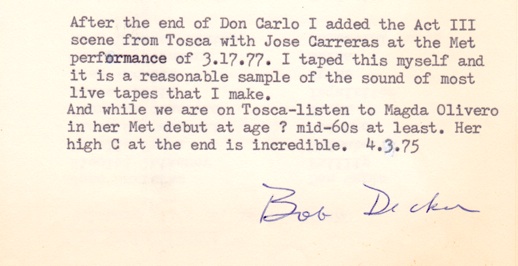
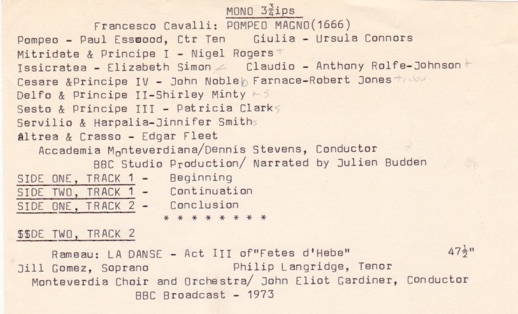
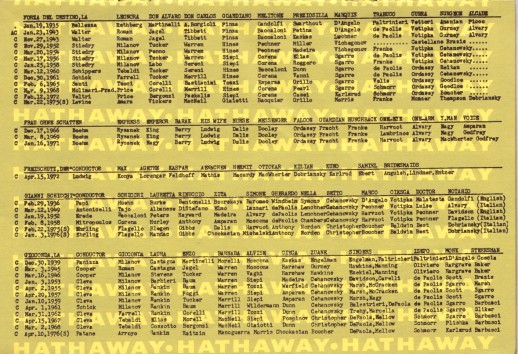
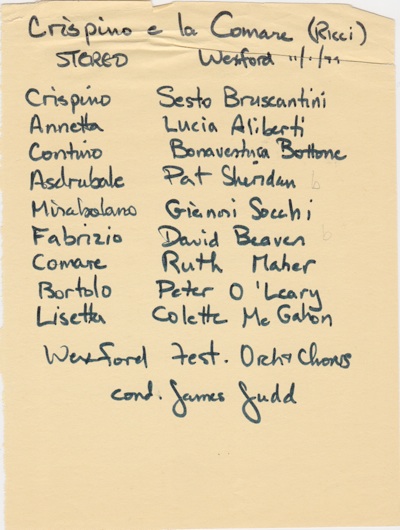
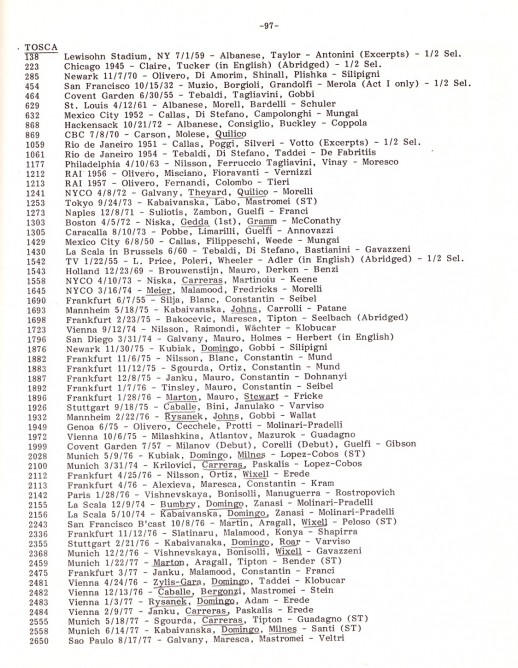
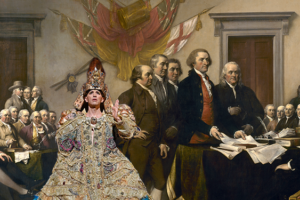
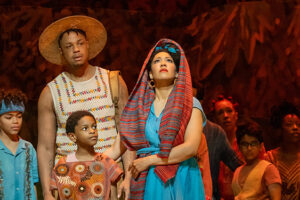
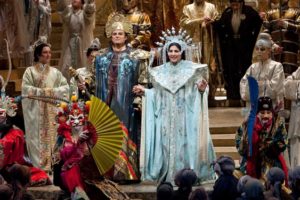






Comments